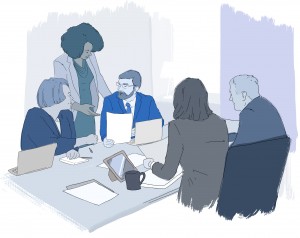.png)
.png)

The other day on a train ride home from London, I had the luxury of being disconnected from internet. I could literally feel my mind relax as I closed my eyes and just let my thoughts go where they wished. Soon enough, they landed on a conversation from a recent coaching session. The more I replayed it in my mind, the more I felt its power…so I have a question for you: “Do you ask for help when you need it?”
“I rarely ask for help.” Those were the words of my client.
Once he said them, I thought to myself, now THIS is a ‘window of opportunity’, waiting to be opened. I simply looked him in the eye, and said, “Oh?” (Perhaps the most brilliant of powerful questions.)
“Yeah. I loathe doing so!” he exclaimed.
“Tell me more,” I said.
“Well, it’s such a sign of weakness.” My client paused. “I was hired to contribute, not to get others to do my job. I’m supposed to know what to do, and how to do it.”
I let him pause some more.
“Besides, people might see me as incapable, unmotivated – or even lazy!”
COACHES, do you recognize this conversation, in some version or another? At this moment I could have nudged the discussion in a zillion directions, but something told me to try the following:
“Well, what about offering help? How often do you do that?”
“Oh, all the time! It’s my job!” he responded enthusiastically. Then, another pause.
“OK, OK, I get the point – there’s an imbalance here. But I just don’t want to feel or look weak.”
“Hmm.” I followed that with, “When someone asks you for assistance, do you help them out?”
“Usually.”
“And, how does that make you feel?” I asked.
He smiled. “Well, good, of course.”
I asked him to tell me more, and he did.
Long story short, we eventually generated quite a list (well, he did) of how he feels when asked for help:
These are important feelings! We then looked at it from a different angle – the positive impact he can have on others when he asks for help:
Our time was almost up, and I focused my mind on how my client could begin to integrate this important learning into his professional life. I turned to him. “I have a request: Will you ask for help at least three times over the next week?” He nodded yes.
I asked him to jot down answers to these questions each time he asked for help:
What was the situation? How hard or easy was it to ask? How did the person respond? And finally, what might the impact have been on the person?
Just before closing our session, my client turned to me and said, “May I ask you for help? Could you email me in three days to inquire how I am doing on this?”
The train sped on, and I sat up straighter in my seat. As the Dutch countryside rolled by, I felt secure in the knowledge that asking others for help offers both parties the opportunity to feel empowered.